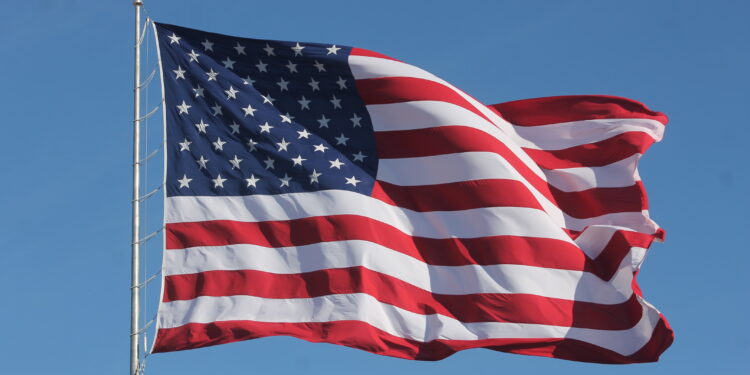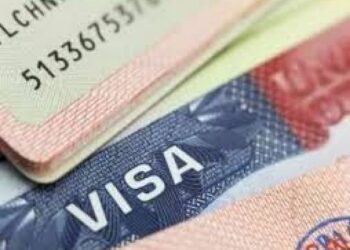The United States Citizenship and Immigration Services (USCIS) has unveiled the first changes to the naturalization civics test as part of a multi-step overhaul of American citizenship standards.
Naturalization is the legal process through which a non-citizen becomes a full citizen of a country.
The 2025 test is designed to better assess applicants’ knowledge of U.S. history and government, ensuring that new citizens fully understand the rights and responsibilities of American citizenship.
USCIS spokesperson Matthew Tragesser said the changes ensure only eligible applicants who understand English and U.S. civics can naturalize
“Today, U.S. Citizenship and Immigration Services posted a Federal Register notice announcing implementation of the 2025 naturalization civics test. The 2025 test assesses an alien’s understanding of U.S. history and government in line with the statutory requirement and is one of many steps in an ongoing effort to restore integrity to the naturalization process and meet congressional intent,” they said
Backstory
The U.S. had signaled potential reforms to the H-1B visa program and the naturalization civics test.
The new head of the U.S. Citizenship and Immigration Services (USCIS), Joseph Edlow, indicated that the H-1B system needs a fundamental overhaul to better serve the domestic labor market. He emphasized that the program should supplement, not supplant, the U.S. economy and workers.
Mr. Edlow also said the administration wanted to change the naturalization test required by prospective U.S. citizens.
As of now, immigrants study 100 civics questions and then must respond correctly to six out of 10 questions to pass that portion of the test. During the first Trump administration, the agency increased the number of questions and required applicants to respond correctly to 12 out of 20 questions.
Applicants will now face:
- USCIS is restoring robust vetting for all applicants seeking naturalization.
- The agency is conducting stricter reviews of disability exceptions to the English and civics requirements.
- Officers have been given guidance to assess applicants’ good moral character by looking for positive contributions to American society, rather than just the absence of bad behavior.
- USCIS is resuming neighborhood investigations to ensure that applicants meet statutory requirements and are worthy of U.S. citizenship.
- Clarification that unlawfully voting, unlawfully registering to vote, and making false claims to U.S. citizenship disqualify applicants from demonstrating good moral character.
The agency noted that in the coming weeks and months, it will announce additional steps to enhance the integrity of the naturalization process further.
What you should know
The U.S. has implemented several significant changes to its visa policies affecting Nigerian travelers. These adjustments impact visa validity, application procedures, and compliance requirements.
- In July, the U.S. introduced a new visa reciprocity schedule for Nigerian citizens. Most non-immigrant visa categories, including B1/B2 (business/tourism), F, M, and J (student and exchange visitor), now have a single-entry validity of just three months.
- In addition to the reduced visa validity, the U.S. has introduced new application requirements. Applicants under the F, M, and J visa categories must now make their social media profiles publicly visible. Applicants are also required to disclose all social media usernames or handles used in the last five years on applications such as the DS-160. Failure to do so can affect the eligibility of the application.
- The U.S. also implemented new immigration-related fees for several visa categories, effective July 22, 2025. A $100 application fee has been introduced for Form I-589 (asylum applications), along with a $100 annual fee for pending applications.
Employment Authorization Document (EAD) applications under specific categories now require a $550 fee for initial applications and $275 for renewals or extensions. Additionally, a $250 filing fee has been introduced for Special Immigrant Juvenile (SIJ) cases under Form I-360. These fees are non-waivable and must be submitted with applications postmarked on or after July 22, 2025.























